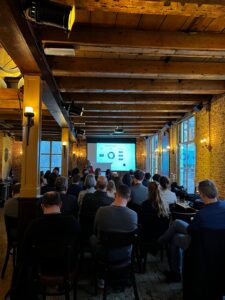Quantum technology may seem like future music, but it is closer than ever. From lightning-fast computation to unbreakable communications, this revolutionary technology offers unprecedented opportunities and fundamental challenges. What does it mean for government and society? And how can we harness quantum technology for social issues?

 CIO Cafe Feb. 11, 2025
CIO Cafe Feb. 11, 2025

